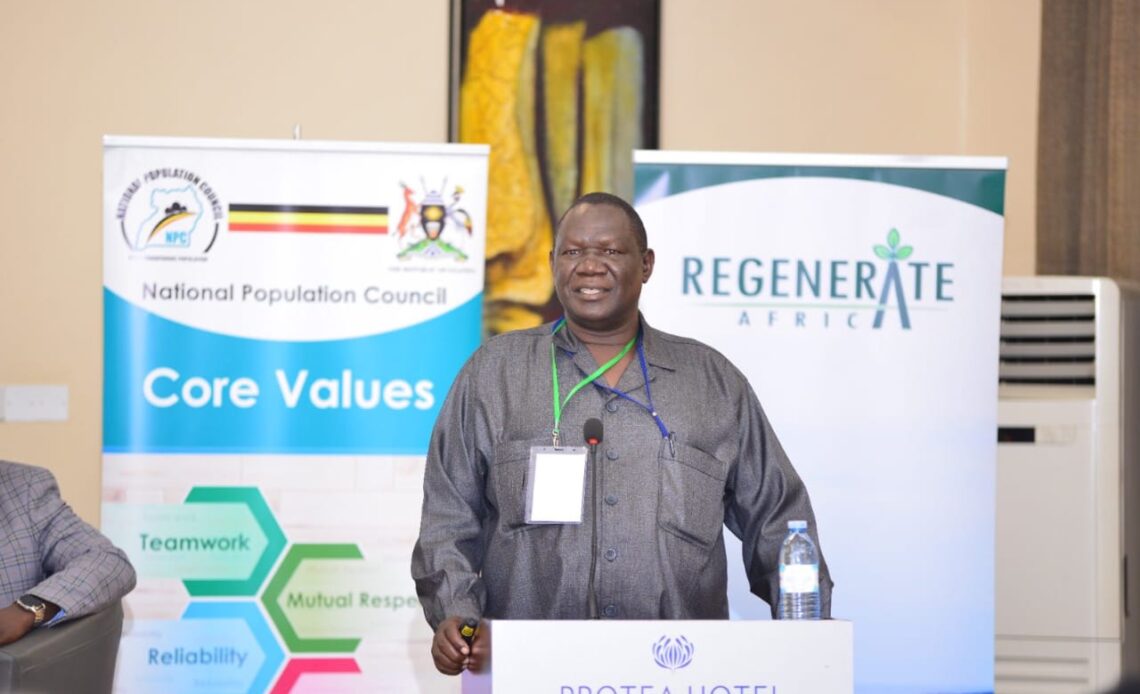
Environmentalists have warned the government of unchecked population growth which they said is becoming one of the biggest threats to the environment.
The remarks were made during the multi-stakeholder dialogue on population dynamics, gender, health and climate connection that took place at Protea Hotel in Kampala.
Experts called on the government to control rapid population growth and create alternative sources of income for the people, noting that the multi-stakeholder dialogue on population dynamics, gender, health & climate connection cannot be underestimated.
Environmentalists believe that the issues affecting the world cannot be solved before the issue of population growth is addressed.
Previously, the World Population Review gave Uganda’s population growth rate as 3.32% and the fertility rate as 4.78 births per woman. In 2021 our population was given as 47,529, 564 and it is estimated that the country’s population will reach 100 million by 2050.
This means, there are certainly not enough resources for the big population and the trends recorded over the years show that the population doubles every 20 years. Currently the global population is at 8 billion.
Although the issue of high population is becoming a serious challenge to the environment, the Director General of the National Population Council, Dr Jotham Musinguzi said there are measures that can be put in place to mitigate rapid population growth.
One of the measures he believes can help include education, encouraging people to use family planning methods, sensitising the population to take adaptive measures to protect the environment among others. Musinguzi advised the government to put in place policies that can enable the strategies put in place to mitigate the population growth achievable because environmental protection is from different perspectives.
“The issue of making sure that the curriculum in the schools get to help people know about the environment, how to protect it for sustainable development is extremely important and it is a piety that our previous curriculum at whatever level environment was not taken as a very important issue but this is something that need to be corrected,” said Musinguzi.
David Mugabi, the Director of Environment Affairs at the Ministry of Water and Environment said some Ugandans can’t stop giving birth until they get a certain gender among their children which is a very big challenge.
Mugabi attributed the rapid population in the country to a number of factors including improved health care, early marriages, an influx of refugees, the availability of food in the community among others.
“Some people produce many children thinking that when others die, others can survive. We need to put up an education system with keep our girls in schools, so the government policy which target girls to keep them in school is very important,” he noted.
He said there is also need to put in place family planning services which are easily accessible by women and this he believes will greatly help in taming the growth of the population.With access to family planning and reproductive health services, couples can space their children giving them access to resources.
The Executive Director Rapid Advisory Services, Leonard Mutesasira said dealing with the environment issues won’t be easy unless the different causes or drivers of the environment including deforestation, corruption of water systems among others are critically tackled.
He explained that the factors that are driving deforestation and degradation are poverty related and as the population grows the demand on forests keeps on increasing because people need to cook, farm and graze their animals.
“Unless we address the environment issue from the poverty, economic point of view, it is going to be a very difficult task. We need to look for money that is patient and that is directed and targeting those that are causing pressure,” he noted.
Experts believe that sustainable financing is a challenge for Uganda and so in addressing it, there is a need to look for mechanisms of finding alternative resources other than the government.
Population growth has increased demand for agricultural land and firewood energy, and rural poverty restricts the ability to invest in sustainable land use practices. The population growth rate leads to exerted high pressure on the forest resources in order to derive people’s livelihoods and it makes land for settlement and agriculture inadequate and consequently resort to the forest land.

